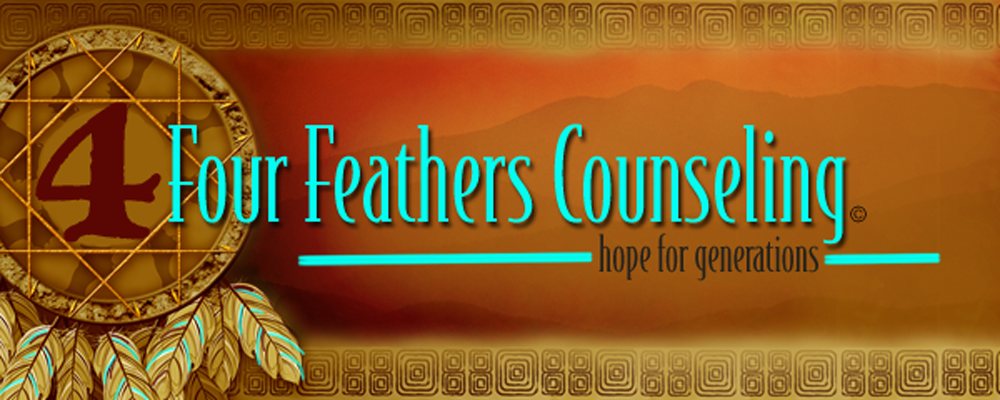Individual Services
Advocacy
Advocacy is a service we provide for juveniles who are struggling with appropriate social engagement with either adults or peers. We help kids build positive natural supports and positive relationships with safe adults.
EMDR
Eye Movement Desensitization and Reprocessing
A type of therapy that allows clients to reprocess traumatic events with a skilled clinician and gain tools to work on daily stressors and increase distress tolerance.
Neurofeedback and Biofeedback Therapy
Four Feathers offers Neurofeedback or Neuro-biofeedback to assist in your mental health journey. Neuro-biofeedback is self-regulation training of brain function. The therapist observes the brain’s electrical activity, electroencephalogram (EEG) from moment to moment while the client observes their EEG on a user-friendly interface and receives a reward for invoking change to more efficient brain patterns. Neuro-biofeedback addresses problems of brain dysregulation including the anxiety-depression spectrum, attention deficits, behavior disorders, and emotional disturbances.
Mental Health Needs Assessments
The clinician interviews collateral and completes a battery of assessments resulting in a diagnosis for the client and recommendations for mental health needs and services.
Strengths and difficulties questionnaire, Trauma symptom checklist, etc.
Victim DV Assessments
The clinician interviews/reviews collateral and completes an assessment to determine risk factors for the client and offers clinical recommendations for appropriate services.
Family Services
Informed Supervisor
A training provided to families to understand line of sight and sound, and how it can be realistically enforced in homes with a vulnerable minor. The training also discusses the impact of sexual abuse on children. It allows families to ask questions about possible risk behaviors so that they see how to model positive boundary setting and what is normal sexual development.
Multisystemic Therapy (MST)
MST is an intensive in-home therapy for families of children (ages 12-17 and 6 mos) who are at risk for out-of-home placement. MST works with and supports parents/guardians of the children to change aspects of the child’s environment (home, community, and/or school) that can sustain maladaptive behaviors.
Supervised Visitation
Four Feathers can provide feedback on parenting skills while supervising parents who have had their children removed from their custody for various reasons.
Life Skills and Family Preservation
Family preservation works with the child to reduce the behaviors that place the child at risk for out-of-home placement. Family preservation works with biological families, but they can also work with foster families.
Parent-Child Interaction (PCI)
Four hours of observed interaction between parents and children, the result is an assessment done by a therapist evaluating the nature/dynamic of the parent and child. This differs from supervised visitation in that there needs to be collateral information given for the assessment, and that the clinician does not offer any critiques or parenting skills in the moment.
Foster Care / Adoption
ICWA Provider
Four Feathers is an ICWA-appropriate provider. The owner of our company is Native American, and we have an ICWA-compliant parenting curriculum.
Specialists in the Foster Care System
Four Feathers works with both parents who have been in and juveniles who are at risk of being placed in the foster care system. The owner of the company also works on the board of a Child Placement Agency (CPA).
Pre/Post Adoption Therapy
Four Feathers works with families who are preparing to adopt kids, we can do some psychoeducation for parents to address behavioral and emotional needs for their child, and assist parents with unforeseen barriers connecting with their child after a recent adoption.
Relinquishment Counseling
When adoptive parents are considering if it is in the best interest of their family to reverse an adoption, relinquishment counseling assists the family with walking through the possible emotional tolls for both them and the child, and looking for solutions to possible problems before the reversal is completed.


